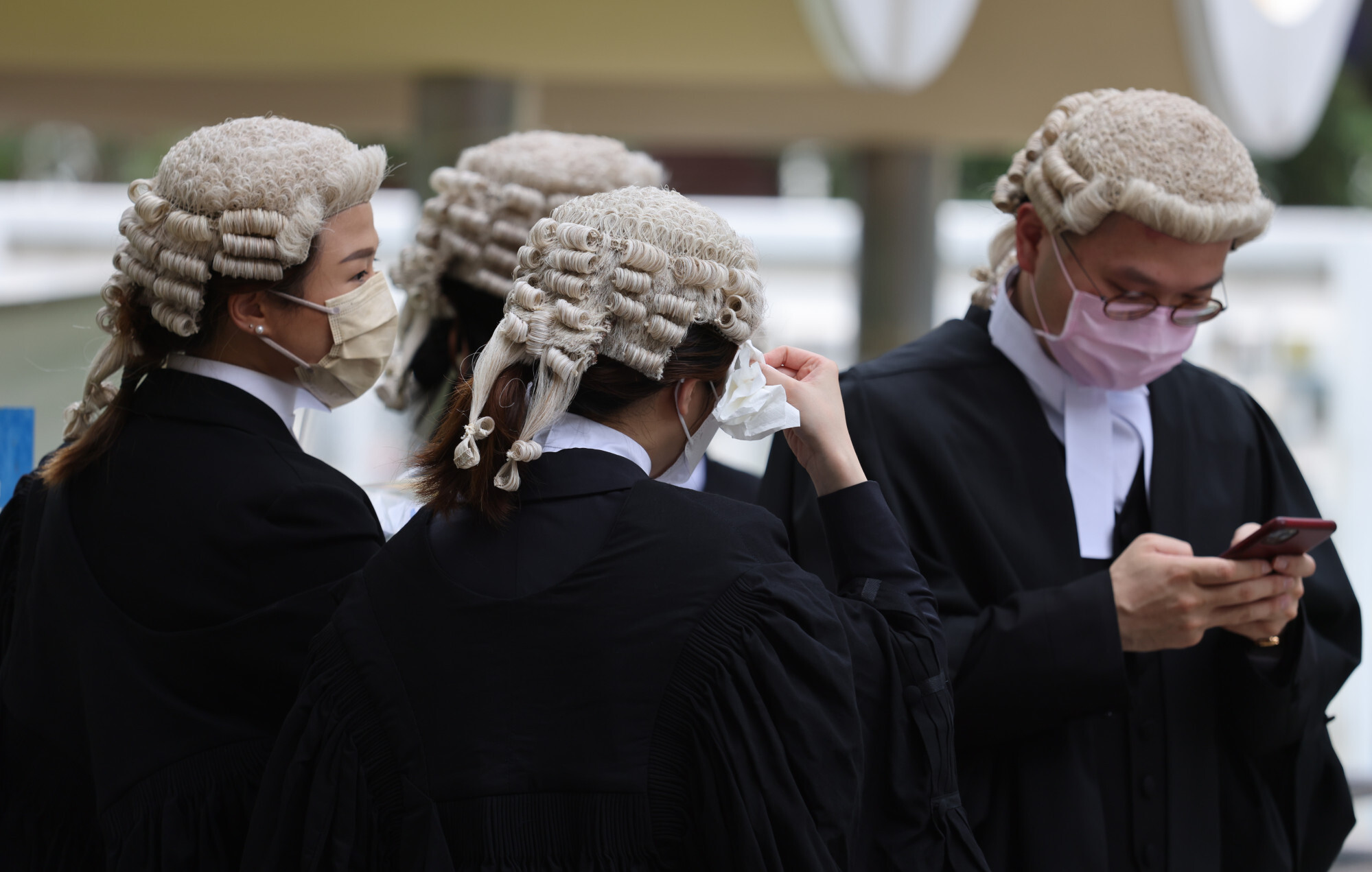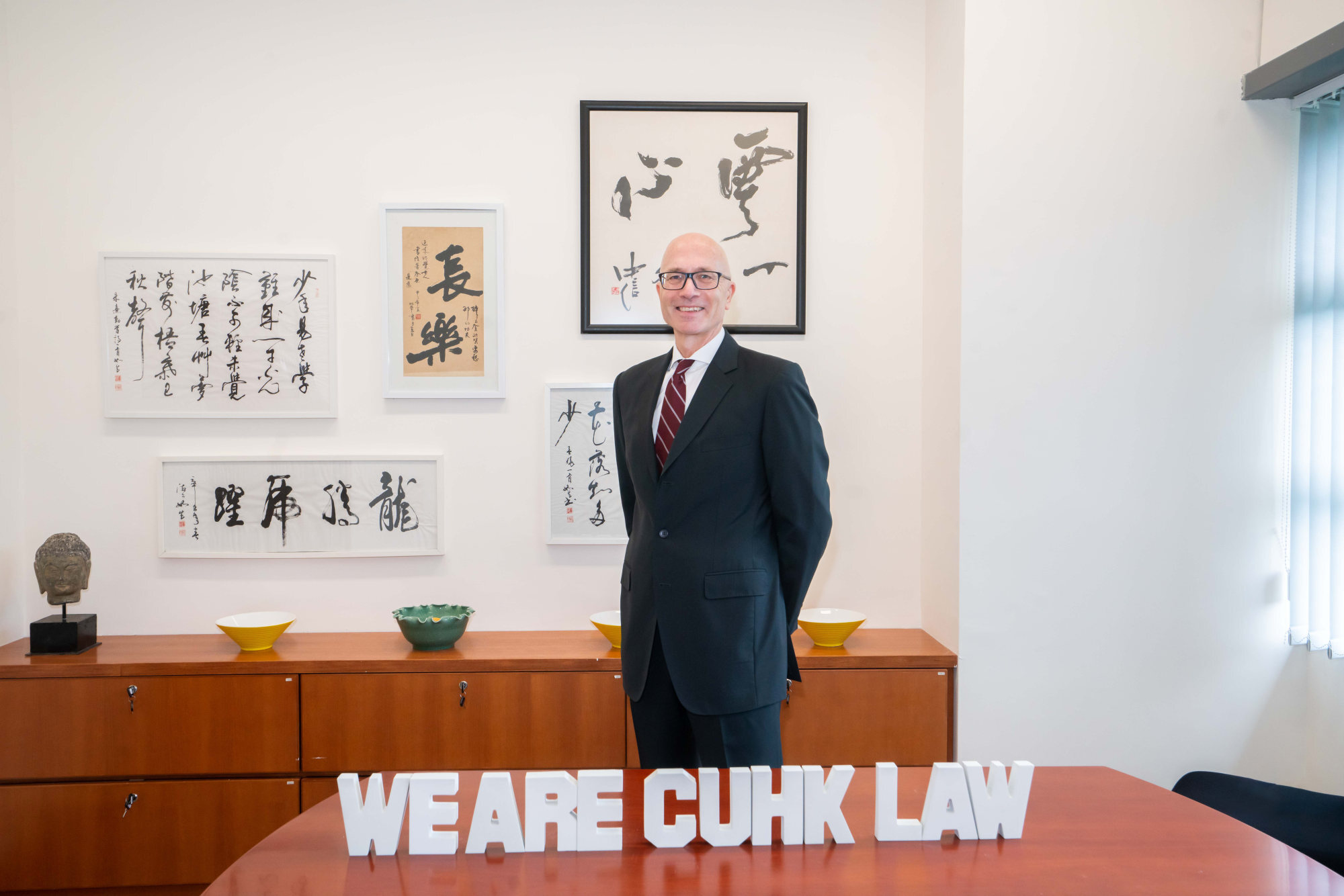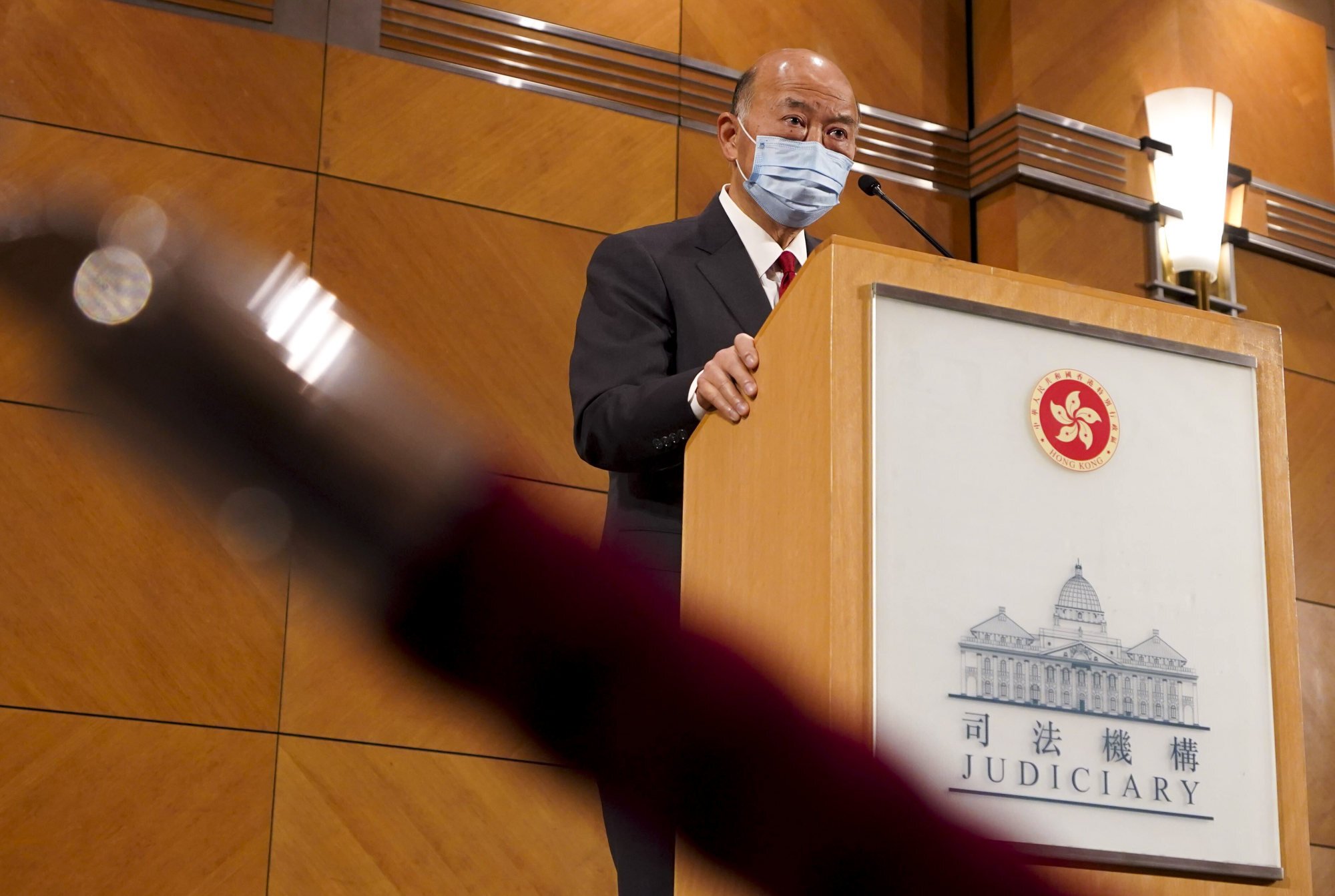
Hong Kong’s Masters of Laws programmes focus on emerging areas of litigation from cross-border issues to environmental law, arbitration and intellectual property
- Chinese University of Hong Kong offers three different programmes of study while at University of Hong Kong (HKU) they look at the intersection of technology and IP
- CityU’s agreements with the Université Paris 1 Panthéon-Sorbonne in France and the University of Fribourg in Switzerland allow students to gain an additional qualification
It takes a lot to become well established in a legal career, not least the required combination of academic qualifications and solid professional experience. But as many now realise, to keep moving up and to keep abreast of the latest developments in increasingly complex areas, it also pays to study for a further formal degree and not simply learn on the job.
Fortunately, that need is being met by the selection of highly regarded postgraduate programmes offered by universities in Hong Kong. These options allow students to gain a more specialised knowledge of subjects ranging from arbitration and dispute resolution to environmental law and intellectual property.
And all the signs point to the demand for places on such programmes continuing to rise as the legal frameworks and case law evolve and the sector responds, as it must, to a new set of challenges impelled by technology, the climate crisis and changing priorities within society at large.

For instance, the Faculty of Law at the Chinese University of Hong Kong (CUHK Law) now offers three distinct LLM (Master of Laws) programmes.
One focuses on Chinese Business Law (CBL) and gives students the skills and know-how to provide specialist China-related advice and services.
The third is in International Economic Law (IEL) and deals with the requirements and practice of cross-border business transactions. The key modules cover international sales and finance, World Trade Organization (WTO) law, mergers and acquisitions (M&A), and international banking law. And, along the way, there is also a chance to conduct independent research in areas of particular interest.
“The tailor-made programmes prepare students for practice in Hong Kong, China and globally,” says Professor Lutz-Christian Wolff, dean of CUHK Law. “Four mandatory courses form the core substantive content and constituent knowledge of each LLM. But each curriculum also comprises a broad spectrum of electives with a view to maximising the specialised learning opportunities for students. All three programmes are also constantly updated to include the very latest developments.”

To illustrate his point, Wolff explains how the faculty has made a point of introducing courses on legal technologies. These explore the legal implications of everything from date privacy issues, e-contracts and cyber investigations to e-discovery, legal forensics and client management systems. They also teach the skills needed to make use of big data for legal research and to write protocols to analyse or compose legal documents.
Another new course, “Chinese law and society in an age of digital technologies and artificial intelligence”, was added recently to an address the fast-moving law and tech developments taking place in China.
“In addition, we can see that pressing global and local challenges highlight the urgent need to integrate environment protection into business operations,” Wolff says. “Lawyers have an essential role to play in this process because their expertise is key to facilitating the green economic transition and the reorganisation of business to achieve sustainability. That is why we established the IEL programme in 2018 to provide expert training in energy, environment and infrastructure law.”
From the 2022-23 academic year, there will also be a brand-new LLM in legal history. It is designed to give students skills in both the substance and methodology of in-depth research and, as an elite programme, will only admit a small number of high-quality applicants.
“Unlike traditional taught postgraduate programmes, this LLM will have a hybrid structure, combining classroom study and a substantial research project completed under the supervision of a member of the faculty,” says Wei Lun, professor of law at CUHK. “This will account for half of the required credits. Students will acquire skills that can pave the way for successful careers in academia, policymaking and practice.”
In terms of actual teaching, the pandemic spurred the use of online and dual-mode options, both of which look sure to continue for the foreseeable future. The “flipped classroom” concept has also been used for several years, with great success. This means both professors and students are quite comfortable using online tools to supplement in-person instruction and in-class discussions.
Overall, the CUHK LLM programmes aim to place a clear emphasis on the cross-jurisdictional, comparative and international features of the law. In the era of globalisation, these have become essential aspects for the day-to-day work of many legal professionals and will remain vital for anyone keen to make their mark in a cosmopolitan business hub like Hong Kong.
“Our students are trained to understand and apply law in the global context,” Wolff says. “As a result, the LLM programmes attract a good mix of fresh graduates from Hong Kong, mainland China and abroad, as well as legal practitioners and professional from other sectors with many years of experience. The resulting diversity brings different perspectives to the classroom, which is extremely valuable from a pedagogical point of view.”
Pressing global and local challenges highlight the urgent need to integrate environment protection into business operations
At the University of Hong Kong (HKU), the main objective of one of the stand-out Master’s programmes is to give a sound understanding of the rapidly developing fields of technology law, intellectual property law, and the intersection between the two.
Students can expect to learn about cutting-edge issues concerning the legal implications of artificial intelligence (AI), big data and the regulation of internet platforms. The various courses also delve into the whys and wherefores of data mining, 3D printing, nanotech and outer space technologies. Such topics naturally involve study of the rules and penalties needed to protect computer programs and algorithms, the guidelines governing user-generated content, and the rights attendant to online streaming, digital remixes and advances in biotechnology.
“Synergies with our other LLM programmes mean that students will also have a wide pool of additional course choices to explore, from compliance and regulation to Chinese law,” says Dr Marcelo Thompson, assistant professor of law and the deputy director of HKU’s LLM in technology and intellectual property law. “This programme, though, is unique in the way it draws together an international faculty to examine developments in these fields from the perspectives of both the common law and the Chinese legal system. Of course, it also takes into account changes in other important jurisdictions such as those of the European Union.”
Besides core modules and electives, the basic requirements include completion of two capstone courses, one on law and the internet, the other dealing with international and comparative intellectual property law. Applicants with a background in non-law disciplines must also pass two foundation courses, which will be determined by the faculty at the time of admission. And all subject areas are regularly updated and expanded to ensure students are analysing and getting to grips with the most contemporary questions in the realm of technology and IP.
“Our graduates include individuals from many types of background and they have gone on to occupy positions not just in legal practice, but also in the media, with hi-tech companies, in the public sector and academia, and even in the fashion industry,” Thompson says.
Future candidates, he notes, should have a good first degree or equivalent, a high level of proficiency in English and, importantly, a real passion for tech- and IP-related matters.
“The 21st century has witnessed the rise of China as a complex and fascinating global powerhouse in the fields of technology and innovation,” Thompson says. “Lawyers have the chance to play a significant part in that, and external examiners have evaluated our LLM as the leading programme of its kind in Asia.”
Also breaking new ground is the Master of Laws in Arbitration and Dispute Resolution (LLMArbDR) taught by the School of Law at City University of Hong Kong (CityU). This postgraduate qualification was established in 1991 and was the first of its kind in Asia. In 2011, it led the way once again by becoming the first programme recognised by the Chartered Institute of Arbitrators to offer “Module 4 Advanced Award Writing” in Hong Kong. And, over the years, it has set the standard in numerous other ways by attracting highly qualified and widely experienced professionals to design and teach key courses.
“The programme offers a unique blend of academic and practical training in a broad range of dispute resolution methods,” says Dr Christopher To, adjunct professor and programme director for the LLMArbDR at CityU’s School of Law. “There is an emphasis on domestic and international arbitration, as well as on mediation, adjudication and negotiation. And one of the aims is to inspire leadership in these areas.”
Along with developing this expertise, to be applied in Hong Kong and elsewhere in the Asia-Pacific region, the objective is also to foster original research in arbitration and alternative dispute resolution (ADR).
Having the legal and general knowledge of the methods to handle arbitration, as well as the practical skills to resolve disputes, is of value nowadays in a broad range of professional, industrial and commercial activities. Therefore, students are given the know-how to participate effectively in all capacities. That includes as a party, as an advocate, an expert, or as arbitrator and mediator.
To reach that point, there is a wide variety of coursework, depending on the module and the intended outcomes. Some assignments, for example, might involve writing an essay on a prescribed topic or analysing a specific legal problem and providing advice. Others will focus on drafting, a case study, or in-class exercises such as the presentation of a seminar paper or a legal argument, which may contribute to final marks for the course and the overall programme.
“The general practice is to assess a student’s performance and level of attainment by both coursework and traditional examinations,” To says. “The coursework is also a means whereby each student gains practice in developing the relevant skills as part of the learning process.”

On a separate note, he adds that support has successfully been obtained from the University Grants Committee Targeted Taught Postgraduate Programmes Fellowships Scheme for the 2022-23 academic year. As a result, there are nine fellowship places available for LLMArbDR students. The lucky recipients will have to pay a minimum tuition fee of HK$42,100 with the difference subsidised by the fellowships. This will be subject to a cap of HK$120,000 for each student regardless of their actual period of study.
Besides that, though, the programme has been included in the list of courses approved for Continuing Education Fund (CEF) purposes. Consequently, local Hong Kong students can apply for CEF reimbursement on completion of relevant courses and after meeting stipulated attendance requirements.
“This programme is intended for, but not limited to, professionals, executives and others with existing expertise in a broad range of industrial and commercial fields,” To says. “A typical intake of 100 students includes lawyers, social workers, doctors, construction engineers, civil servants and businesspeople who already have between five and 10 years’ professional experience.”
A notable plus point, made possible through the CityU School of Law’s collaborative agreements with the Université Paris 1 Panthéon-Sorbonne in France and the University of Fribourg in Switzerland, is that selected individuals can study at these partner institutions and obtain two postgraduate degrees upon satisfying the various requirements.
Furthermore, there are ongoing tie-ups with a number of leading ADR bodies, including the Hong Kong International Arbitration Centre, the Chartered Institute of Arbitrators and the Hong Kong Mediation Council. Over the years, all of these organisations have played an active and pivotal role in supporting the programme and maintaining the push for ever higher standards.
“We strive for excellence in preparing students for professional practice and industry,” To says. “Many of our graduates are now prominent figures in the international arbitration and mediation community. And as members of the CityU School of Law’s alumni association, they can continue to gain a real-life perspective on other aspects of the legal profession, while also developing long-term contacts and fostering friendships with fellow alumni and current students.”
